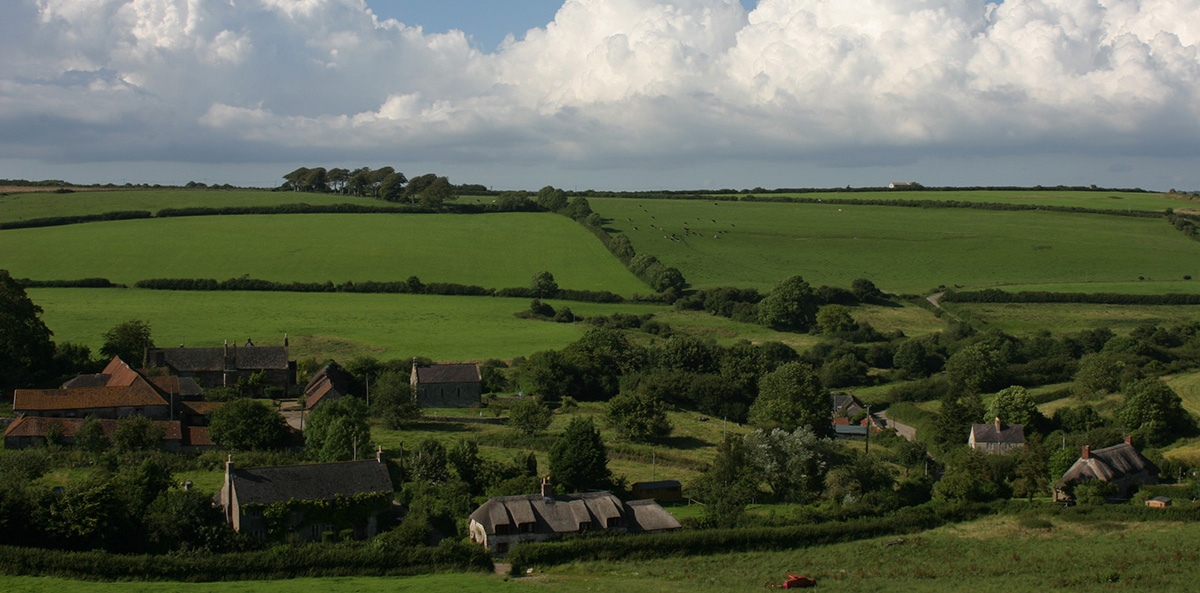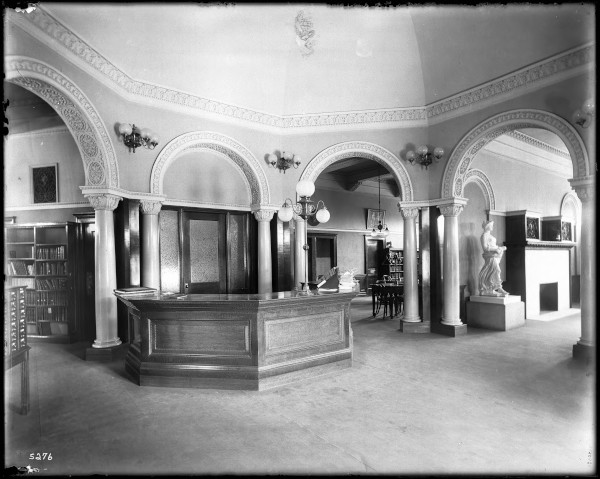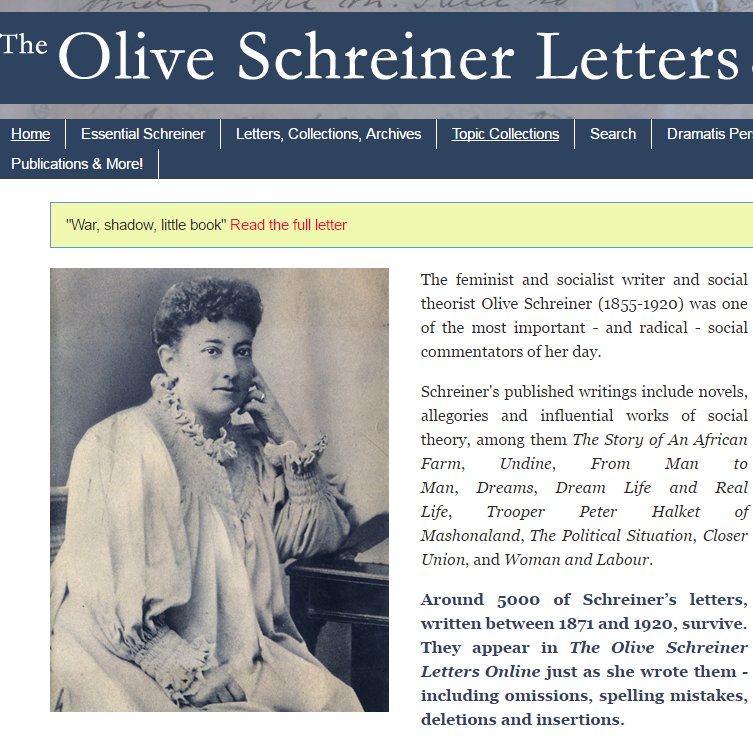 Professor Ferguson was a well-known and highly regarded historian who graduated from the University of Western Ontario and finished his career teaching at that university. I first encountered his name on the textbook that was required in an introductory history course at the University of Maryland: A Survey of European Civilization (with co-author Geoffrey Bruun). Years later I was surprised to find him among the history faculty at UWO and I was fortunate enough to have been enrolled in two of his classes. One was related to the Renaissance and the other was a seminar on historiography. As well, there were some evening supplementary sessions held at his house which is located across from St. Peter's Seminary and adjacent to King's College. Mrs. Ferguson, also a professor, was often involved and music from the period being studied was played.
Professor Ferguson was a well-known and highly regarded historian who graduated from the University of Western Ontario and finished his career teaching at that university. I first encountered his name on the textbook that was required in an introductory history course at the University of Maryland: A Survey of European Civilization (with co-author Geoffrey Bruun). Years later I was surprised to find him among the history faculty at UWO and I was fortunate enough to have been enrolled in two of his classes. One was related to the Renaissance and the other was a seminar on historiography. As well, there were some evening supplementary sessions held at his house which is located across from St. Peter's Seminary and adjacent to King's College. Mrs. Ferguson, also a professor, was often involved and music from the period being studied was played.
I was reminded of Professor Ferguson because a fellow student from that time has recently published another book. Among the acknowledgements he mentions "the pleasures and benefits of Wallace K. Ferguson's seminars on the Renaissance..." Given that Professor Ferguson died in 1983 and that there is not much information readily available about him, I thought it worth providing some here. From it you will learn more about Professor Ferguson's career and scholarship and you will see that my old friend is not the only one to acknowledge him for the support and and inspiration he provided.
Sources:
Books and articles by Professor Ferguson are found in some of the sources noted below. Otherwise the references are about him.
In 1971 his colleagues in the history department produced a festschrift: FLORILEGIUM HISTORIALE: Essays Presented to Wallace K. Ferguson, edited by J.G. Rowe and W.H. Stockdale.
The picture directly above is from this book which contains some biographical material at the beginning and a portion is provided here. Otherwise there is not any additional information about Professor Ferguson to be found among the essays.
“Wallace Klippert Ferguson was born in Peel County, Ontario on 23 May 1902. His father was a Methodist minister, who, before entering the active ministry, taught Hebrew and Patristic Greek. In 1924, Professor Ferguson graduated from the University of Western Ontario with an Honours Bachelor of Arts degree in English and History. He then entered Cornell university as a graduate student and holder of the Andrew Dixon White fellowship in History. His thesis for the Master of Arts degree, under the direction of Carl Becker, was in the field of the French Revolution and was completed in 1925. His first publication, an article on “The Place of Jansenism in French History,” appeared in 1927. During further graduate work at Cornell under the direction of Preserved Smith, Professor Ferguson began work on one of his life-long interests, the life and works of Desiderius Erasmus. In 1927 Professor Ferguson received the degree of Doctor of Philosophy from Cornell university and spent the next year in Europe on a grant from the Social Science Research Council. This grant enabled him to embody the results of his doctoral research in his first book, Erasmi Opuscula, which consisted of an edited collection of the works of Erasmus not included in the Leyden edition of the Opera Omnia.
On his return from Europe, Professor Ferguson joined the History department at the Washington Square college of New York University where he remained for twenty-eight years and made notable contributions to the development of one of the outstanding history departments in North America. In 1956 he returned to the University of Western Ontario to occupy the J.B. Smallman Chair of History and serve as head of the department of history. He is now senior professor of history at the University of Western Ontario [1971].”
The profile notes that Western awarded him an LL.D. in 1954 and concludes that:
“His publications and scholarly labours have earned Wallace Ferguson an honoured place in the historiography of the Renaissance. Even so, it is possible that his most significant contribution, albeit an intangible one, has been the unfailing encouragement and support which he has given to countless students and colleagues. The editors hope this volume of essays contributed by friends and colleagues will serve as fitting testimony to Professor Ferguson’s services to the historian’s craft during his long and dedicated career.”
Guggenheim Memorial Fellowship - 1939
[The picture at the top of the younger Ferguson is from this source.]
Fellow: Awarded 1939
Field of Study: Renaissance History
Competition: US & Canada
Born: 05-23-1902
Died: 01-19-1983
As published in the Foundation’s Report for 1939–40:
FERGUSON, WALLACE KLIPPERT: Appointed for studies of the histories and historical interpretations of the Renaissance written from the15th century to the present; tenure, twelve months from July 1, 1939.
Born May 23, 1902, in Canada. Education: University of Western Ontario, B.A., 1924; Cornell University, M.A., 1925, Ph.D., 1927. Social Science Research Council Fellow, 1927–28.
Instructor in History, 1928–30, Assistant Professor, 1930—, New York University. Visiting Professor of History, University of Chicago, Summer, 1931.
Publications: A Survey of European History, v. I, 1936; The Renaissance, 1940. Editor of Erasmi Opuscula: A Supplement to the Opera Omnia, 1933. Contributor to Persecution and Liberty: Essays in Honor of George Lincoln Burr, 1931. Articles and reviews in Journal of Religion, American Historical Review, Journal of Modern History, Political Science Quarterly, Historical Outlook, Nation, Saturday Review of Literature, Herald Tribune Books.
[About the Foundation: United States Senator Simon Guggenheim and his wife established the John Simon Guggenheim Memorial Foundation in 1925 as a memorial to a son who died April 26, 1922. The Foundation offers Fellowships to further the development of scholars and artists by assisting them to engage in research in any field of knowledge and creation in any of the arts, under the freest possible conditions and irrespective of race, color, or creed.]
Another announcement about the award can be found here:
“GUGGENHEIM FUND NAMES 69 FELLOWS,” New York Times, Mar. 27, 1939.
“Sixty-nine fellowships with awards totaling $150,000 were announced yesterday by the John Simon Guggenheim Memorial Foundation to applicants judged most capable of adding to the "scholarly and artistic power" of this country.”
Canada Council Medal - 1967
Almost thirty years after winning a Guggenheim, Professor Ferguson was awarded a Canada Council Medal.
“Achievement Worth $2,500,” The Globe and Mail, Dec. 12, 1967.
OTTAWA (CP)--”Canada Council medals for 1967 have been awarded to historians Frank Underhill and Wallace K. Ferguson, painter Jean-Paul Lemieux and literary scholar H. Northrop Frye.”
Selected Newspaper Articles (these are not found elsewhere in any bibliography related to Ferguson).
“ Armament Called 800 Year Problem,” New York Times, Feb. 9, 1952.
“Governments have had a hard time making financial ends meet for 800 years, particularly at times when changing techniques of warfare involved increasing expenses for armaments, Prof. Wallace K. Ferguson of New York University said yesterday in a symposium on the Renaissance at the Metropolitan Museum of Art.”
“The Essential Unity That Linked Three Centuries,” Wallace K. Ferguson, New York Times, June 19, 1955.
This is a book review by Ferguson. The book is: Four Stages of Renaissance Style: Transformations in Art and Literature.
“NYU Professor to Deliver Talk,” Los Angeles Times, Feb. 5, 1956.
It is announced that Ferguson is to give three talks on the Renaissance.
“CBS Plans Series on Renaissance,” Val Adams, New York Times, Aug. 8, 1956
“One of the speakers is F. Dr. Frank C. Baxter, who concludes his televised lectures on Shakespeare Sunday, will turn next to the Renaissance. Beginning on Aug. 19, he will, serve as host to various scholars who will discuss aspects of the Renaissance, including its art, music, architecture, scholarship, politics and astronomy.”
“Prof. Ferguson Weds Prof. Margaret Wing,” New York Times, Mar. 27, 1949.
In this wedding announcement one learns that Professor Margaret Prouse Wing was “an alumna of Lady Margaret Hall of Oxford University [and a] Professor of German at Sarah Lawrence College.”
She was the hostess for the events on Waterloo Street.
Both she and Professor Ferguson had been married before. His first wife, from whom he was divorced, died in 1961 and the obituary can be found here: “Winnifred Carroll,” New York Times, Mar. 3, 1961.
The image below is from M. Pleasant Cemetery. (Although it appears to indicate that Professor Ferguson died in 1985, that is not the case. He died in 1983).
I am sure there were local obituaries and notices about his death in campus publications, but they have not yet been digitized and I did not take the time to look for them. One is provided below from a fellow scholar of the Renaissance.

In Memoriam: Wallace K. Ferguson; A Tribute
Paul Oskar Kristeller, Renaissance Quarterly,
Volume 37, Number 4 | Winter, 1984, p. 675.
The first two paragraphs are provided here:
“Last year, the community of Renaissance scholars, and the Renaissance Society of America in particular, suffered a serious loss with the death of Wallace Ferguson, one of the leading Renaissance historians of his generation, and one of the founders of the Renaissance Society of America, a member of its Board from 1954 to 1965, and its President from 1965 to 1967.
Wallace Klippert Ferguson was born in Peel County, Ontario, on 23 May 1902; he received his B.A. at the University of Western Ontario in 1924, and his Ph. D. at Cornell in 1927. He taught at New York University 1928-56, at the University of Western Ontario 1956-72, and died in London, Ontario, after a long illness on 19 January 1983.”
This is the concluding paragraph:
“Wallace Ferguson will be remembered by his friends, colleagues, and students for his learning, his wit, and his generosity, and for a disinterested concern for historical scholarship and for a moral and intellectual integrity that have become rather rare in recent years. His solid and substantial contributions to the study of the Renaissance, and especially of Erasmus, will be used and admired as long as these studies continue to be seriously pursued.”
Post Script
The acknowledgement by my old friend and classmate, Graham MacDonald, is presented here:
At the University of Western Ontario, I owe thanks to “Professor William H. Stockdale, who first brought Ruskin to my attention as a person of interest. Professor Frederick A. Dreyer, a Burke scholar and a close student of Methodism, advised that a knowledge of the old poor laws would be important with respect to Ruskin. The pleasures and benefits of Wallace K. Ferguson’s seminars on the Renaissance and his many writings have been lasting rewards.”
It is found on p. xvii. of John Ruskin's Politics and Natural Law: An Intellectual Biography which was recently published by Palgrave Macmillan.
The legacy continues. Every year the Canadian Historical Association awards the Wallace K. Ferguson Prize for "the outstanding scholarly book in a field of history other than Canadian history."
For details click on the link above.
Some Western faculty members have been nominated for the Ferguson Prize. For example, Professor Ian K. Steele's book, Setting All The Captives Free: Capture, Adjustment, and Recollection in Allegheny Country was shortlisted in 2014. In 1995 Professor Rande Kostal won the Ferguson Prize for his book, Law and English Railway Capitalism, 1825-1875.
The picture of the older Professor Ferguson provided above is how I remember him. A tie is generally not seen in a class room these days, nor is tobacco. There used to be long silences while Professor Ferguson reloaded his pipe. No one minded and he wasn't the only person in the room smoking.
For information about another notable historian who passed through Western see my profile of N.S.B. Gras.




